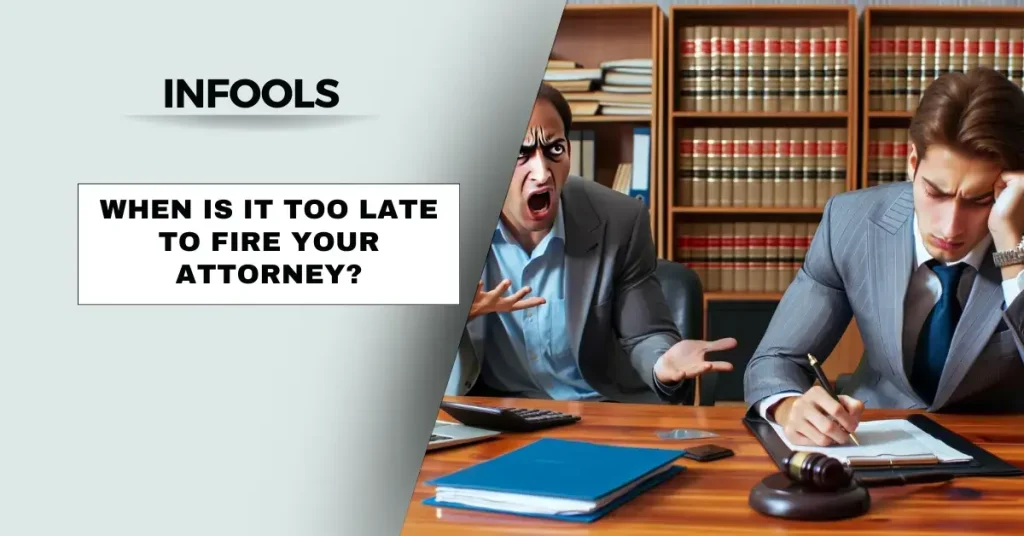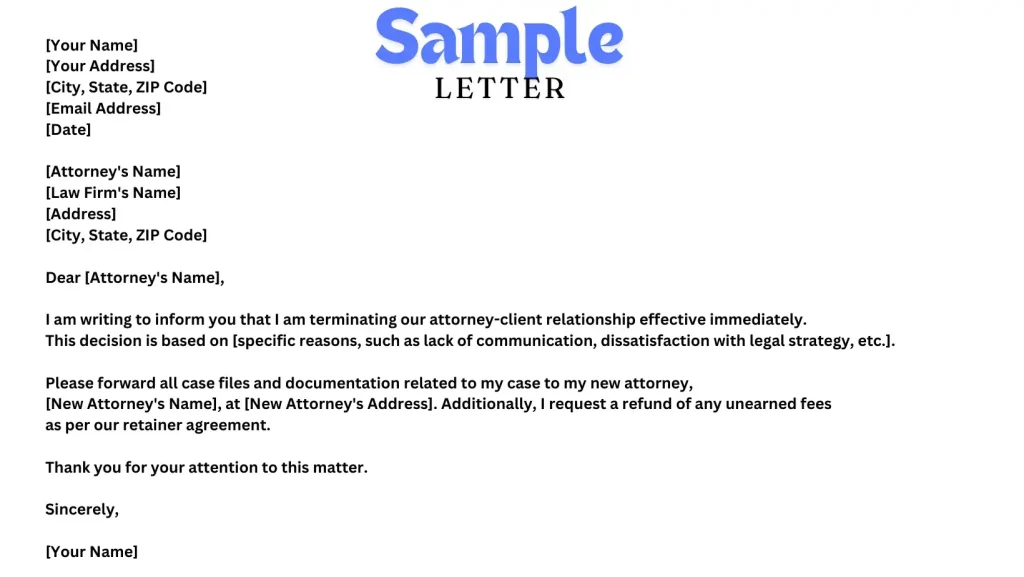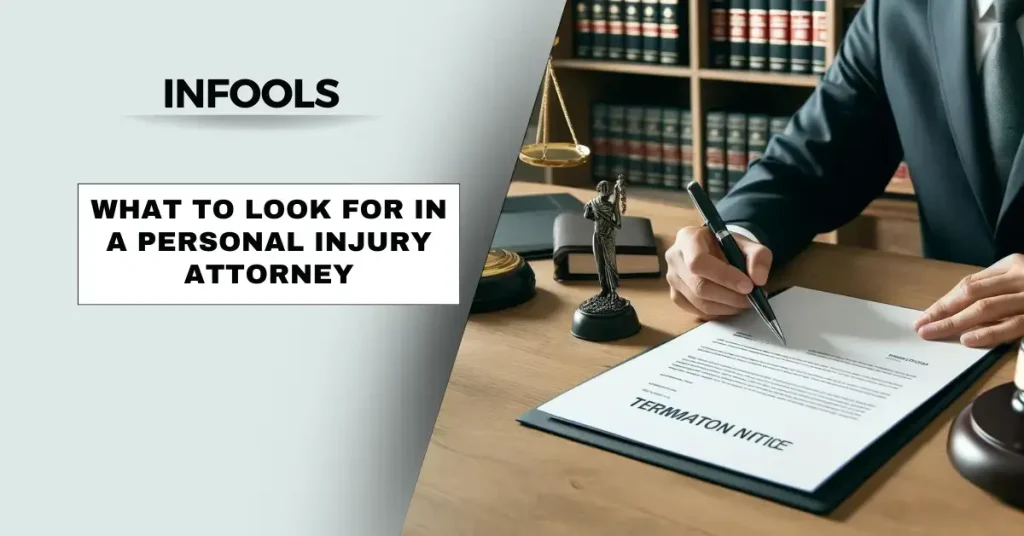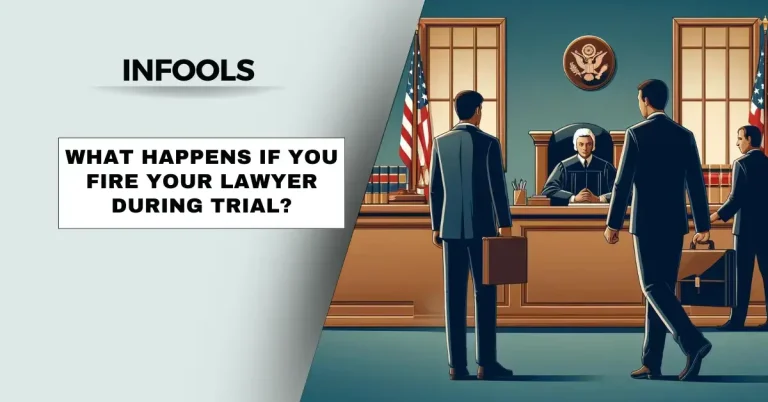What happens if you fire your lawyer during trial? Firing your lawyer in the midst of a trial can disrupt your case and lead to delays. This decision requires careful consideration and understanding of the potential consequences.
Changing lawyers during a trial may be necessary if you face issues like unethical behavior or lack of communication. However, it can also impact your legal strategy and the overall progress of your case.
Knowing how to handle this situation properly is crucial to ensure your legal interests remain protected and your case proceeds smoothly.
KEY POINT
- Firing your lawyer during a trial can cause delays and affect your case strategy.
- Unethical behavior and lack of communication are valid reasons to change lawyers.
- Understanding contractual obligations and state-specific regulations is crucial.
- Proper documentation and a clear termination letter are essential for a smooth transition.
- Hiring an experienced replacement lawyer minimizes disruptions and ensures continued effective representation.
Table of Contents
Why Might You Want to Fire Your Lawyer During Trial?
Unethical Behavior
If your lawyer engages in unethical behavior, it is a valid reason to terminate their services. Unethical conduct includes actions like overbilling, conflict of interest, or failing to act in your best interest.
If you suspect your lawyer is not adhering to ethical standards, it is crucial to address this issue immediately to prevent harm to your case.
Lack of Communication
Communication is vital in the attorney-client relationship. If your lawyer is unresponsive, fails to keep you updated, or doesn’t return your calls, it can cause frustration and hinder your case’s progress.
A lack of communication can prevent you from making informed decisions and negatively impact your case strategy.
Dissatisfaction with Legal Strategy
If you are unhappy with your lawyer’s approach to your case, it might be necessary to consider a change.
This could include disagreements over the direction of your case, dissatisfaction with how your lawyer is handling evidence, or a general lack of confidence in their abilities.
If you believe your lawyer’s strategy is jeopardizing your case, it may be time to find a new lawyer.
Legal Considerations When Firing Your Lawyer
Legal Malpractice Implications
When you decide to fire your lawyer, it’s essential to consider the potential for legal malpractice claims. Legal malpractice occurs when a lawyer fails to competently represent their client, resulting in harm.
If you believe your lawyer’s negligence or misconduct has adversely affected your case, you might have grounds for a legal malpractice claim. Consulting another attorney who specializes in legal malpractice can provide guidance on this issue.
Contractual Obligations and Consequences
Firing your lawyer can have contractual implications. You may have signed a retainer agreement outlining your obligations and the lawyer’s duties. This contract might include clauses about termination and payment.
It is crucial to review this agreement to understand your rights and obligations. Be prepared to pay for services rendered up to the point of termination, and understand that you might not be entitled to a refund of any retainers paid.
State-Specific Laws and Regulations
Laws and regulations regarding firing a lawyer can vary by state. For example, some states require court approval to change lawyers during a trial. It is essential to familiarize yourself with your state’s specific rules and procedures.
Consulting your state’s bar association or another lawyer can help you navigate these regulations and ensure you comply with all legal requirements.
Legal Requirements and Documentation
Properly documenting the termination of your lawyer is crucial. This includes writing a formal termination letter that outlines your reasons for firing the lawyer and requesting the transfer of your case files.
Ensure that you keep copies of all correspondence and documentation for your records. Proper documentation can help prevent disputes and ensure a smooth transition to a new lawyer
Read MOre: How To File A Medical Malpractice Lawsuit Without A Lawyer?: 2024 Guide
What is a Marsden Motion in California?
Definition and Purpose
A Marsden Motion is a legal mechanism used in California to request a new attorney. It applies to criminal cases where the defendant feels their current lawyer is not providing adequate legal representation.
Named after the case People v. Marsden, it allows defendants to express their concerns and request a change in legal counsel.
When and How to File a Marsden Motion
To file a Marsden Motion, you need to inform the court that you wish to replace your lawyer. The court will then hold a private hearing where you can explain your reasons for wanting a new attorney.
It’s important to provide specific examples of why you believe your current lawyer is not effectively representing you. The judge will consider your arguments and decide whether to grant the motion.
Potential Outcomes
If the judge grants the Marsden Motion, you will be assigned a new lawyer, typically a public defender if you cannot afford a new lawyer. If the motion is denied, you must continue with your current attorney.
The judge’s decision is based on whether there is evidence of inadequate representation that could impact the fairness of the trial.
How to Fire a Lawyer in Maryland
Steps to Terminate a Lawyer in Maryland
Firing a lawyer in Maryland involves a clear and structured process. First, review your retainer agreement to understand any contractual obligations. Next, inform your lawyer of your decision to terminate their services.
This should be done in writing to ensure there is a record of your decision. Clearly state your reasons for termination and request your case files.
Legal Requirements and Documentation
In Maryland, it’s important to provide proper documentation when terminating a lawyer. This includes a formal termination letter detailing your reasons for ending the attorney-client relationship.
Ensure you request the transfer of your case files and any unearned fees. Keep copies of all communications for your records to avoid any disputes.
Possible Repercussions
Firing your lawyer can have repercussions on your case. It may cause delays as your new lawyer needs time to get familiar with your case. Additionally, if you fire your lawyer close to a court date, you might need to file a motion for a continuance to give your new lawyer adequate preparation time.
Be prepared for possible financial implications, including paying for services rendered by your former lawyer up to the point of termination.
When is it Too Late to Fire Your Attorney?

Timing Considerations
Timing is crucial when deciding to fire your lawyer. Ideally, you should make this decision well before significant court proceedings. Firing your lawyer too close to a trial date can complicate your case.
The court may not grant a continuance, leaving your new lawyer with insufficient time to prepare. Therefore, it’s best to act as soon as you realize your lawyer is not meeting your expectations.
Court’s Perspective on Last-Minute Changes
Courts generally frown upon last-minute changes in legal representation. They may see it as a tactic to delay proceedings.
Judges assess whether a change will disrupt the trial schedule and whether the reasons for firing the lawyer are compelling. If the court believes your request is unjustified, they might deny it, forcing you to continue with your current lawyer.
Impact on Case Progress and Strategy
Changing lawyers late in the trial process can significantly impact your case. Your new lawyer will need time to review case files and understand your legal strategy.
This transition period can cause delays and might even weaken your case if the new lawyer is not fully prepared. It’s crucial to weigh these potential impacts before deciding to fire your lawyer close to critical court dates.
Can I Fire My Attorney If I Signed a Contract?
Contractual Obligations and Clauses
Even if you’ve signed a contract with your attorney, you retain the right to terminate their services. However, you must adhere to the contractual obligations outlined in the retainer agreement.
This often includes paying for services rendered up to the termination point. Reviewing your contract can help you understand these obligations and any clauses related to termination.
How to Navigate Firing an Attorney Under Contract
Navigating the termination of an attorney under contract requires careful consideration. Begin by formally notifying your attorney in writing. Clearly state your reasons and request a final invoice for services provided.
If there are disputes over fees, be prepared to negotiate or seek mediation. Keeping communication professional and documented is essential to avoid further complications.
Potential Financial Implications
Firing an attorney under contract can have financial implications. You might still owe fees for work already completed.
Additionally, if you paid a retainer, the unused portion may be refundable, depending on your contract terms. Understanding your financial responsibilities before firing your lawyer can help you plan accordingly and avoid unexpected expenses.
Can I Fire My Lawyer Before Settlement?
Considerations Before Making This Decision
Before firing your lawyer before a settlement, consider the potential impact on your case. Changing lawyers can cause delays and disrupt negotiations.
If you believe your lawyer is not effectively representing your interests, it might be necessary. However, weigh the benefits against the potential drawbacks carefully.
How It Impacts the Settlement Process
Firing your lawyer before a settlement can affect the process. Your new lawyer will need time to get up to speed, which can delay negotiations.
This might also impact the settlement amount if the new lawyer has a different strategy. Ensure you have a plan for a smooth transition to avoid significant disruptions.
Steps to Follow
If you decide to fire your lawyer before settlement, follow these steps: review your contract, provide a written termination notice, and request your case files. Notify the opposing party of the change in representation.
Ensure your new lawyer has all the necessary information to continue your claim effectively. Proper planning and communication are key to minimizing disruptions.
How to Fire a Lawyer and Get Your Money Back
Strategies to Recover Fees
Recovering fees after firing your lawyer involves a few strategies. First, review your retainer agreement to understand the terms regarding refunds. If the agreement states that unused retainer fees are refundable, you have a stronger case for getting your money back.
Write a formal letter to your lawyer requesting a refund for any unearned fees. Clearly outline the amount you believe you are owed and provide an itemized list of the services provided and their costs.
Negotiating a Refund
Negotiating a refund can be challenging. Approach this process professionally and politely. Provide evidence to support your claim, such as detailed billing statements and records of services that were not performed or completed.
If your lawyer is unwilling to provide a refund, consider mediation through your local bar association. Many bar associations offer dispute resolution services that can help mediate fee disputes.
Legal Recourse if a Refund is Denied
If your lawyer refuses to refund unearned fees, you may need to take legal action. File a complaint with your state’s bar association, which regulates lawyer conduct and handles fee disputes.
You can also consider suing your lawyer in small claims court if the amount in question falls within the court’s limits. Before taking legal action, ensure you have all necessary documentation, including your retainer agreement, correspondence with your lawyer, and detailed billing records.
How to Fire Your Attorney: Letter Sample
Key Components of a Termination Letter
When firing your attorney, a formal termination letter is essential. Key components of this letter include a clear statement of termination, the reasons for your decision, and a request for your case files.
Be concise and professional in your wording. Mention any contractual obligations you expect to be honored, such as refunds for unearned fees.
Tips for Drafting an Effective Letter
To draft an effective termination letter, follow these tips: be clear and concise, avoid emotional language, and provide specific reasons for your decision. Include a deadline for transferring your case files to your new attorney.
Ensure that your letter is dated and that you keep a copy for your records. Sending the letter via certified mail can provide proof of receipt.
Sample Letter Template
Here is a sample letter template to fire your attorney:

Can I Fire My Attorney and Represent Myself?
Pros and Cons of Self-Representation
Deciding to represent yourself, also known as “pro se” representation, has its pros and cons. One advantage is saving on legal fees. You have complete control over your case and its strategy. However, self-representation comes with significant risks.
You might lack the legal knowledge and experience needed to effectively argue your case. This could lead to unfavorable outcomes, especially in complex legal matters.
Legal Requirements and Court Approval
In some cases, courts may require approval for self-representation. This is particularly true in complex cases or if you are firing your attorney close to a trial date.
The court will assess whether you are capable of representing yourself adequately. If the court believes you cannot effectively represent yourself, they may deny your request and require you to retain legal representation.
Practical Considerations
Self-representation requires thorough preparation and understanding of legal procedures. You need to be familiar with court rules, filing deadlines, and legal terminology.
Additionally, you must be prepared to handle all aspects of your case, from gathering evidence to presenting arguments in court. Consider the complexity of your case and your ability to manage these tasks before deciding to fire your lawyer and represent yourself.
Can You Fire Your Lawyer in the Middle of a Trial?
Procedural Steps
Firing your lawyer in the middle of a trial involves several procedural steps. First, notify your lawyer of your decision in writing. Next, inform the court of your intention to change representation.
You may need to file a motion requesting the court’s approval to fire your lawyer and hire a new one. The court will hold a hearing to consider your request and evaluate the reasons for the change.
Court Approval and Potential Delays
Court approval is necessary when changing lawyers during a trial. The court will assess whether your reasons for firing your lawyer are valid and whether the change will cause significant delays.
Judges are typically reluctant to allow changes that could disrupt the trial schedule. Be prepared to explain how the change will not unduly delay the proceedings and why it is necessary for your case.
Impact on Trial Proceedings
Firing your lawyer during a trial can have significant impacts on the proceedings. Your new lawyer will need time to review your case files and understand your legal strategy, which can cause delays.
Additionally, the transition may affect the continuity and momentum of your case. Carefully consider these factors before deciding to fire your lawyer during a trial.
If You Fire Your Lawyer, Do You Still Have to Pay Them?
Payment Obligations
Even if you fire your lawyer, you may still have to pay for services rendered. Review your retainer agreement to understand your financial obligations.
Typically, you are responsible for paying for any work completed up to the point of termination. If you have paid a retainer, the unused portion should be refunded according to the terms of your agreement.
How to Negotiate or Contest Fees
If you believe your lawyer’s fees are unreasonable, you can negotiate or contest them. Start by discussing your concerns with your lawyer directly.
If this does not resolve the issue, consider mediation through your local bar association. Document all communications and keep detailed records of the services provided and their costs.
Factors Influencing Payment Decisions
Several factors influence payment decisions when firing a lawyer. These include the terms of your retainer agreement, the amount of work completed, and any outstanding costs or expenses.
Understanding these factors can help you negotiate a fair settlement and avoid disputes over fees. If necessary, seek legal advice to ensure your rights are protected.
Hiring a New Lawyer After Firing Your Current One
How to Find a Suitable Replacement
Finding a suitable replacement lawyer after firing your current one is crucial for the continuity of your case. Start by seeking recommendations from trusted sources, such as friends, family, or other legal professionals.
You can also use online resources like the state bar association’s website, which often provides directories of licensed attorneys. Look for lawyers who specialize in the area of law relevant to your case, such as personal injury or criminal defense.
Transitioning Smoothly
To ensure a smooth transition, promptly provide your new lawyer with all necessary documentation. This includes case files, court documents, and any communication with your former lawyer.
Schedule a detailed consultation to discuss your case’s history and current status. Open communication is key to helping your new lawyer get up to speed quickly and effectively.
Ensuring Minimal Disruption to Your Case
Minimizing disruption to your case involves careful planning and coordination. Inform the court and opposing parties of the change in representation as soon as possible. If necessary, request a continuance to give your new lawyer adequate preparation time.
Maintaining open lines of communication with your new lawyer and keeping them informed of all developments will help ensure your case proceeds smoothly.
What to Look for in a Personal Injury Attorney

Key Qualities and Credentials
When looking for a personal injury attorney, prioritize key qualities and credentials. These include experience in handling personal injury cases, a track record of successful outcomes, and strong negotiation skills.
It’s also important to verify their credentials, such as their education, bar association membership, and any additional certifications in personal injury law.
Questions to Ask During Consultations
During consultations, ask specific questions to evaluate the lawyer’s suitability for your case. Inquire about their experience with cases similar to yours, their approach to case management, and their fee structure.
Ask for references from past clients and details about their success rate. Understanding how they plan to handle your case will help you make an informed decision.
Importance of Experience and Specialization
Experience and specialization are critical when choosing a personal injury attorney. Lawyers who specialize in personal injury law are more likely to be familiar with the nuances of these cases and the tactics used by insurance companies.
An experienced lawyer can effectively represent your interests, negotiate fair settlements, and navigate the complexities of personal injury claims.
Dealing with Unethical Behavior from Your Lawyer
Recognizing Unethical Conduct
Recognizing unethical conduct in your lawyer is essential to protecting your rights. Unethical behavior can include overbilling, conflict of interest, failure to communicate, and mishandling of case files.
If your lawyer is not acting in your best interest or is violating ethical standards, it’s crucial to address the issue immediately.
Reporting to the State Bar Association
If you suspect unethical behavior, report it to your state’s bar association. The bar association oversees lawyer conduct and has the authority to investigate complaints.
Provide detailed evidence of the misconduct, including communication records and billing statements. The bar association will review your complaint and take appropriate action, which could include disciplinary measures against the lawyer.
Seeking Legal Recourse
In addition to reporting unethical behavior, you may need to seek legal recourse. This can include filing a legal malpractice claim if the unethical conduct has caused harm to your case.
Consult with another attorney who specializes in legal malpractice to evaluate your options and pursue compensation for any damages incurred.
FAQs – What happens if you fire your lawyer during trial
Can I Change Lawyers During a Personal Injury Case?
Yes, you can change lawyers during a personal injury case. Ensure that you follow the proper procedures for terminating your current lawyer and transferring your case files to the new lawyer. Communicate your decision clearly to avoid any disruptions to your case.
What Happens If My Lawyer Withdraws from My Case?
If your lawyer withdraws from your case, they must provide you with reasonable notice and transfer your case files to you or your new lawyer. You will need to hire a new lawyer to continue your case. The court may grant a continuance to give your new lawyer time to prepare.
How Do I Know If My Lawyer Is Doing a Good Job?
A good lawyer communicates regularly, provides clear explanations, and actively works on your case. They should keep you informed of all developments and answer your questions promptly. Evaluate their performance based on their responsiveness, professionalism, and the progress of your case.
What Are My Rights If I’m Unhappy with My Lawyer?
If you are unhappy with your lawyer, you have the right to terminate their services. Review your retainer agreement to understand your financial obligations and follow the proper procedures for firing your lawyer. You can also file a complaint with your state bar association if you believe your lawyer has acted unethically or incompetently.
Conclusion – What happens if you fire your lawyer during trial
What happens if you fire your lawyer during trial? Firing your lawyer during a trial is a complex decision with significant implications. Understanding the reasons, legal considerations, and steps involved can help you make an informed choice.
If you need to hire a new lawyer, prioritize experience and specialization to ensure effective representation. Addressing unethical behavior promptly and knowing your rights are crucial to protecting your legal interests. Always seek legal help when needed to navigate these challenging situations effectively.

Morgan Lee is a legal expert specializing in civil rights and corporate law. A graduate from a prestigious law school, Morgan is known for their clear and engaging analysis of complex legal issues, helping readers understand and appreciate the intricacies of law.

